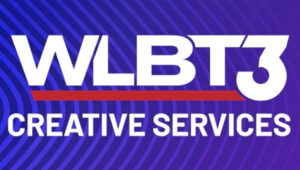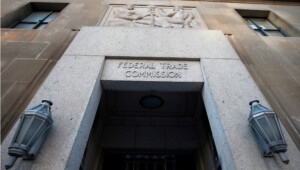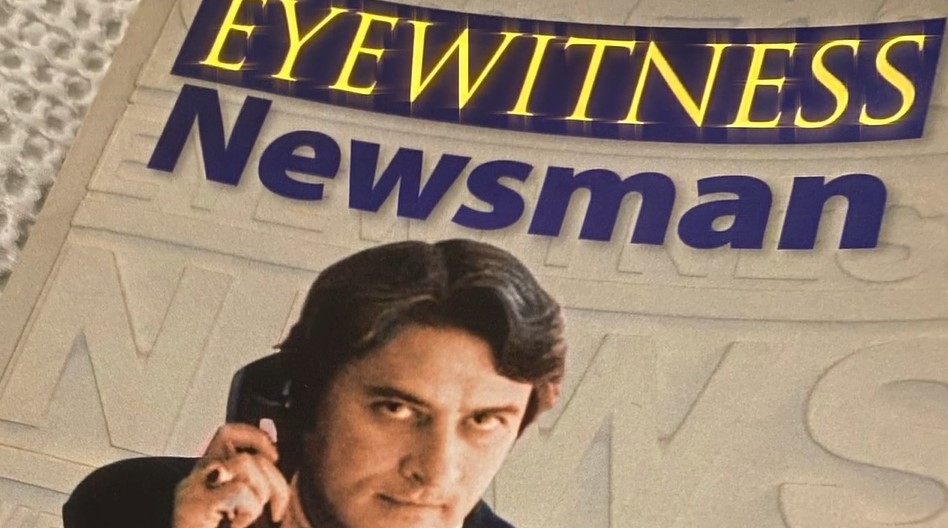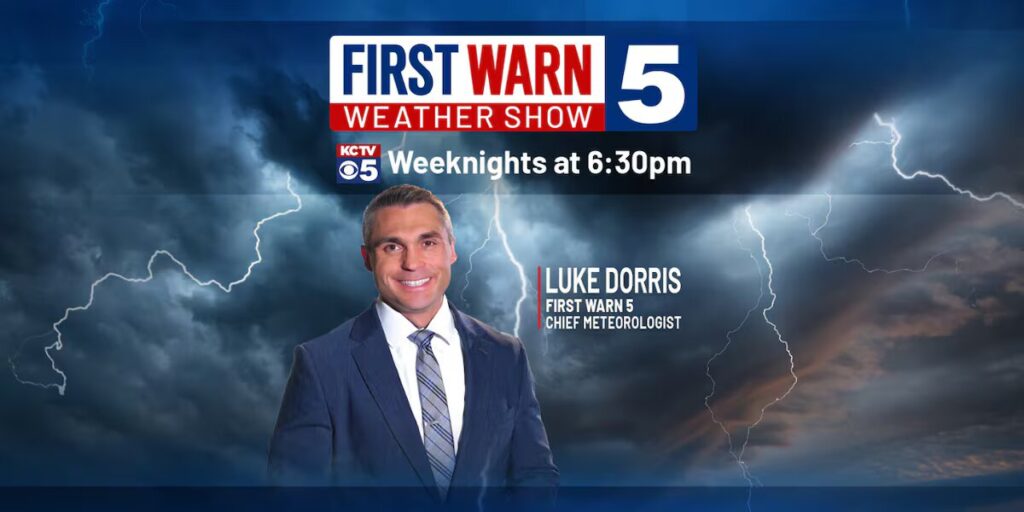How many stations are planning to sell their spectrum in the FCC’s upcoming auction may not be known for months or years, because agency officials, who are barred by law from identifying individual station participants until after the auction is over, are also declining to comment on the number of station applications the agency received.
SBS To Participate In Spectrum Auction
With the start of the first-ever incentive auction less than 90 days away, consumers and other interested parties nationwide want to better understand what this auction means for them. So that the public is fully informed, today the FCC unveiled a new informational website for the incentive auction.
Auction Could Be Bonanza For Small Stations
The Wall Street Journal reports that as momentum tilts toward the Internet, airwaves go on the block for billions in a boon to tiny TV stations like those in Lima, Ohio. In giant media markets like New York City and Los Angeles, the bidding will start out high. One station broadcasting in Manhattan, an affiliate of Telemundo, has an opening bid of $900 million. But smaller cities may hit the jackpot, too. In Lima, the first — and maximum — offer for its most-watched station is about $110 million. Journal subscribers can read the full story here.
Rep. Pallone Introduces the Viewer Protection Act to safeguard consumers’ TV signals following the broadcast incentive auction. The bill proposes allocating $90 million to educate the public on how the repacking may affect them and an extra $1 billion in case the $1.75 billion already mandated to reimburse broadcasters for expenses in moving to new channels proves inadequate.
Fate Of OTA TV Hangs In The Balance In 2016

Let’s Get Serious About The Repack Gap
The FCC gave assurances this week that no stations will be forced off the air following the incentive auction next year because they can’t build their new channels in 39 months as the FCC has mandated. But that should be taken with a grain of salt until the repack rules are rewritten, perhaps around the regionalized repack scheme cooked up by NAB.
Broadcasters Fear FCC Vacant-Channel Plan
The commission’s proposal to reserve up to two UHF channels for unlicensed devices in the shrunken, post-auction TV band could hinder the adoption of ATSC 3.0 and hurt low-power TV stations’ chances of survival, according to NAB and other broadcasters. “In many ways, it’s one of the most insidious [anti-broadcaster] initiatives the FCC has put on the table,” says Sinclair Broadcast Group’s Mark Aitken.
If meeting the 39-month deadline to repack spectrum following next year’s auction becomes a problem, Chairman Tom Wheeler said today, the FCC will “work it out” with the broadcasters. “This is not a drop-off-the-edge-of-the-table situation…. I totally agree on the importance of local community broadcasting and why it has to remain after the auction.”
Date Set For New Wireless Mic Rules
Back in August, the FCC adopted a range of new rules aimed at accommodating wireless mic use both during and after the upcoming repacking of the TV spectrum. That Report & Order has now been published in the Federal Register. As a result, we now know that most (but not all) of the new rules will take effect on Dec. 17.
RF expert Jay Adrick, one of the authors of the NAB-financed study that says that the incentive auction repack could take as much as 11 years, says that if the the repack is conducted on a region-by-region basis, wireless buyers could get access to their spectrum in a highly populated region in less than three years.
Study: Repack Could Take More Than Decade
A new NAB-sponsored study says the necessary TV band reshuffling following next year’s spectrum auction will take between 8 and 11 years and cost $2 billion to $3 billion. That’s much greater than what the government has allocated. Its plan calls for all the stations to be moved in 39 months after the auction and it has set aside just $1.7 billion to reimburse broadcasters for their moving costs. CTIA says it will oppose any effort to stretch out the repack.
Executives from major U.S. TV broadcasters like Sinclair Broadcast Group, CBS and Gray Television say their respective companies will likely participate in the FCC’s upcoming incentive auction of TV broadcasters’ 600 MHz spectrum — to varying degrees. Executives from other publicly held TV broadcasters say they will take a wait-and-see approach.
Operating on ch. 9, KFWD is a MundoMax affiliate. The seller is family-owned HIC Broadcast Inc.
There’s Gold In Them Thar TV Channels, But…

Pearl, APTS Eager To Push ATSC 3.0 At FCC
 The Pearl consortium of several large commercial TV station groups and the Association of Public Television Stations are expected to take the lead asking for FCC approval of the next-gen transmission standard. They want to “sync up” the transition to it with the forced migration to new channels that many stations may have to make if the FCC’s incentive auction of TV spectrum is successful next spring.
The Pearl consortium of several large commercial TV station groups and the Association of Public Television Stations are expected to take the lead asking for FCC approval of the next-gen transmission standard. They want to “sync up” the transition to it with the forced migration to new channels that many stations may have to make if the FCC’s incentive auction of TV spectrum is successful next spring.
The FCC plan, part of a general reorganization of the TV band that would follow the planned incentive auction next year, will harm broadcasting and its viewers, the NAB said in comments filed with the commission today.
The wireless carrier says it doesn’t need to buy more spectrum. It can increase its coverage and capacity by “densifying” its network and increasing the number of cell sites.
On NAB’s TV Agenda: Retrans, Auction, 3.0
 NAB Joint Board Chairman Dave Lougee doesn’t like to make predictions about how the association’s policy initiatives will turn out, but he promises it is working hard to insure that FCC doesn’t tip the scales in favor of MVPDs in retrans negotiations, that the incentive auctions benefit sellers without harming non-sellers and that TV broadcasters have the option of moving to a superior transmission standard.
NAB Joint Board Chairman Dave Lougee doesn’t like to make predictions about how the association’s policy initiatives will turn out, but he promises it is working hard to insure that FCC doesn’t tip the scales in favor of MVPDs in retrans negotiations, that the incentive auctions benefit sellers without harming non-sellers and that TV broadcasters have the option of moving to a superior transmission standard.
The NAB yesterday petitioned the FCC to tweak its incentive auction rules. In repacking the band after the auction, the FCC should not assign stations to the so-called duplex gap […]
Auction Timing, Procedures Become Clearer
The Incentive Auction, by which the FCC is to pay TV stations to surrender their spectrum and then resell that spectrum to wireless carriers, is to begin on March 29, 2016. Even more light was shed on the process Wednesday, in remarks made by FCC Chairman Tom Wheeler at the CTIA convention. In his remarks, he reiterated the intention of the FCC to begin the auction next March. He also indicated that more specific advice about auction procedures would be coming by a subsequent FCC Applications Procedures public notice in October.
Speaking at the the CTIA Show yesterday, FCC Chairman Tom Wheeler said that when the convention reconvenes next year, “we will have concluded a successful incentive auction” and a process will be in place where 600 MHz spectrum will be available for new wireless services. “We’re going to have broadcasters showing up for this.”
Wireless mic users must prepare to dance a spectrum hokey-pokey to adjust to spectrum reductions, new operating rules.
As Auction Nears, Ch. Sharing Interest Grows
 Channel sharing offers an alternative for some broadcasters that would like to cash in on the FCC’s incentive auction, but continue broadcasting. It’s also an opportunity for other broadcasters looking to generate extra revenue by leasing excess spectrum. Here are some items vital to any channel sharing contract. Publisher’s Note: Executive Outlook is a new, branded feature of TVNewsCheck.com. It is offered free today as a sneak preview of the kind of in-depth content soon to be offered in the our Premium Member Center.
Channel sharing offers an alternative for some broadcasters that would like to cash in on the FCC’s incentive auction, but continue broadcasting. It’s also an opportunity for other broadcasters looking to generate extra revenue by leasing excess spectrum. Here are some items vital to any channel sharing contract. Publisher’s Note: Executive Outlook is a new, branded feature of TVNewsCheck.com. It is offered free today as a sneak preview of the kind of in-depth content soon to be offered in the our Premium Member Center.
Tribune Talking Ch. Sharing To Other Groups
CEO Peter Liguori tells analysts today that his company is discussing with Fox, Univision and Ion how best to approach the FCC’s spectrum auction.
Several weeks ago, the FCC announced (through the title of the Auction Procedures Public Notice) that the incentive auction will “begin” on March 29, 2016. But it has remained a mystery what the commission meant by “begin” — until now. Here’s what’s in store.
Add House commerce committee leaders to the growing list of disappointed GOP commissioners, industries and groups that find the FCC’s incentive auction procedures, adopted Thursday in a party-line vote, well short of the mark.
The FCC should not sacrifice low-power TV and translators in order to provide more unlicensed spectrum in the broadcast incentive auction. That was the message delivered in a letter Tuesday to FCC Chairman Tom Wheeler from House Communications and Technology Subcommittee Chairman Greg Walden and House Commerce Chairman Emeritus Joe Barton.
Dish Network isn’t happy with the FCC draft order that would deny auction credits to the two designated entity companies in which Dish had a financial interest.
The broadcast incentive auction hasn’t even been held yet, but the wireless industry is worried that there will be no new spectrum in the pipeline after the final gavel falls.
Pat Butler Bullish On Public TV’s Prospects
 The president of the Association of Public Television Stations says the financial outlook for his stations is strong thanks, in part, to funding from a Republican-controlled Congress and contributions from a growing number of states. He also talks about his problems with the FCC incentive auction and subsequent repacking of the TV band and why free, universal broadcasting — in the highest possible picture quality — must remain a cornerstone of public media.
The president of the Association of Public Television Stations says the financial outlook for his stations is strong thanks, in part, to funding from a Republican-controlled Congress and contributions from a growing number of states. He also talks about his problems with the FCC incentive auction and subsequent repacking of the TV band and why free, universal broadcasting — in the highest possible picture quality — must remain a cornerstone of public media.
It looks like the dates for the FCC incentive auction are becoming clear. After this week’s delay of the consideration of the incentive auction items, the drafts of the FCC orders that were not considered at yesterday’s meeting have now appeared on the list that the FCC maintains of items that are circulating among the commissioners for consideration. The list includes an entry with a March 29, 2016, auction start date.
FCC Chairman Tom Wheeler defended the commission’s proposal to repack some television stations into the duplex gap, the space between uplink and downlink frequencies in the mobile wireless spectrum. If the FCC doesn’t have the option, Wheeler said it would “negatively” affect the cash broadcasters would get.
A diverse group of broadcasters and a bipartisan group of lawmakers asked FCC Chairman Tom Wheeler to think twice before repacking broadcasters in the so-called duplex gap because it would inhibit live news reporting and deprive consumers of next-generation services.
FCC Chairman Tom Wheeler decided Wednesday afternoon to pull two of three incentive auction items from the commission’s Thursday meeting agenda, the auction procedures item and the item on mobile spectrum holdings addressing how much spectrum will set aside for bidding by smaller wireless carriers. Even with postponing the two items, Wheeler said the broadcast incentive auction timeline remains “on course for the first quarter of 2016.”
House Energy and Commerce leadership is urging FCC Chairman Tom Wheeler to postpone Thursday’s scheduled vote on the incentive auction procedures after the agency released last-minute data.
 There are three items on the FCC agenda for July 16, but only one big topic: the broadcast incentive auction. What will happen Thursday is less predictable since the FCC said late Friday it would waive the sunshine period for the auction procedures item to give lobbyists more time — until 7 p.m. Wednesday — to make further presentations. Along with the extension, the FCC released new auction simulation data that showed how the FCC might move some TV stations into the so-called duplex gap, the band of unlicensed spectrum between the upload and download frequencies used by wireless carriers.
There are three items on the FCC agenda for July 16, but only one big topic: the broadcast incentive auction. What will happen Thursday is less predictable since the FCC said late Friday it would waive the sunshine period for the auction procedures item to give lobbyists more time — until 7 p.m. Wednesday — to make further presentations. Along with the extension, the FCC released new auction simulation data that showed how the FCC might move some TV stations into the so-called duplex gap, the band of unlicensed spectrum between the upload and download frequencies used by wireless carriers.
Ins and Outs of Post-Auction Channel Sharing

 NAB President Gordon Smith spells out the advantages of adopting the new next-generation TV transmission standard, but says his group must represent the wishes of “a majority our members.” And those members are divided. Talking to the New York State Broadcasters Association, Smith also addresses the spectrum auction and repack as well as efforts by cable and satellite to get retrans reform.
NAB President Gordon Smith spells out the advantages of adopting the new next-generation TV transmission standard, but says his group must represent the wishes of “a majority our members.” And those members are divided. Talking to the New York State Broadcasters Association, Smith also addresses the spectrum auction and repack as well as efforts by cable and satellite to get retrans reform.
































